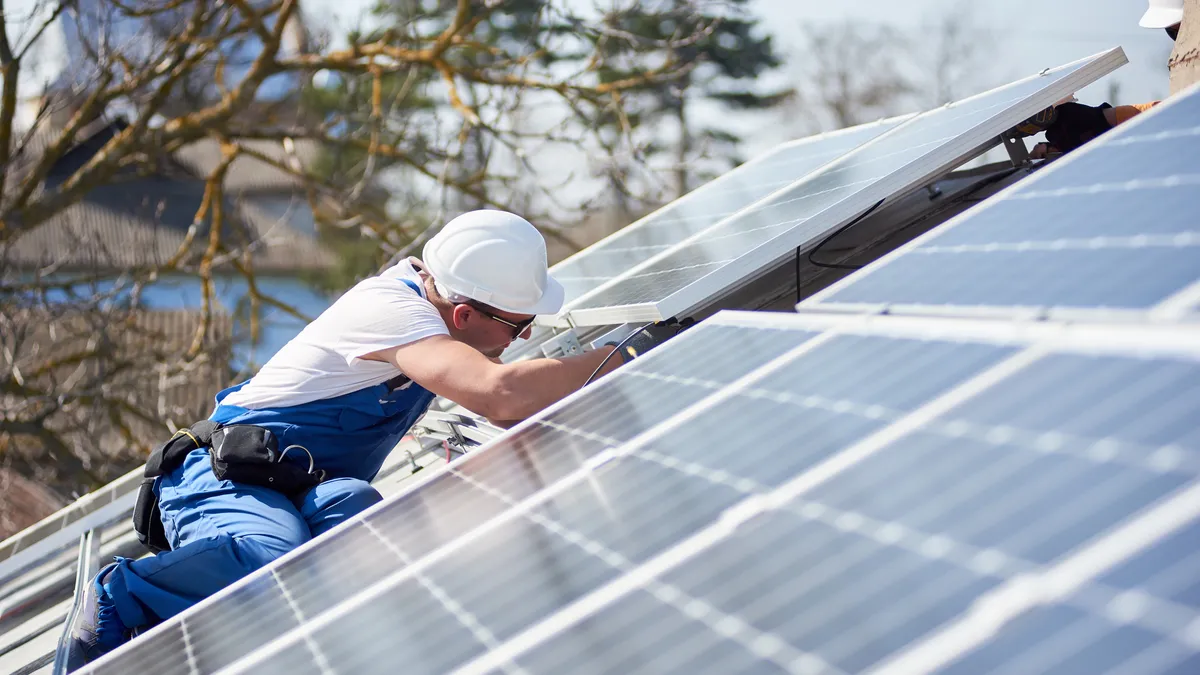Rhode Island is seeking a firm to partner with two state agencies to deploy solar on low-to-moderate income, or LMI, single-family homes using environmental justice tax credits in the Inflation Reduction Act.
The Rhode Island Office of Energy Resources and the Rhode Island Commerce Corp.’s Renewable Energy Fund wrote in the Dec. 29 request for proposal that they will evaluate proposals from qualified firms to offer solar leases and/or solar power purchase agreements to homeowners who live in environmental justice focus areas and make up to 80% of their area’s median income.
The Affordable Solar Access Pathways “is a no-money down third-party ownership program entirely focused on benefiting LMI families and will be the nation’s first state solar RFP launched under the IRA’s new tax regime,” according to the RFP.
Vero Bourg Meyer, the Clean Energy States Alliance’s project director for solar and offshore wind, said the Affordable Solar Access Pathways program is an opportunity to work with “flexible and responsive state partners who are keenly interested in developing a long-term partnership” to serve LMI communities and extend solar power in New England.
The solar company selected as the state’s partner will use the IRA’s new environmental justice adders to the Investment Tax Credit, receive upfront incentives with sharing mechanisms and marketing assistance from the Office of Energy Resources and the Commerce Corp.’s Renewable Energy Fund, and establish itself as a trusted state partner in Rhode Island, according to a Jan. 3 release from the Clean Energy States Alliance.
The agencies will also help the winning bidder identify community events and other chances to promote the program, make staff available for outreach, and answer customers’ questions.
The agencies will give preference to proposals that offer: contracted first-year customer net savings minimums; potential pathways to ownership; limited risk exposure from yearly rate increases, or “escalators”; choices in contract pricing structure; and additional technologies such as storage and electric vehicle chargers for additional savings.
The incentive rate to be provided per kW DC for each project will be proposed by the bidders in their RFP proposals, the RFP said.
Proposals from interested firms must be submitted by 2 p.m. Feb. 24.














